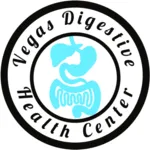What is an upper endoscopy?
An upper endoscopy, often referred to as an EGD (esophagogastroduodenoscopy) is a procedure that allows your doctor to examine the inside lining of your upper gastrointestinal tract which includes the esophagus, stomach and duodenum (the first part of your small intestine by using a small, thin, flexible tube with an attached camera called a gastroscope.
Why is an upper endoscopy recommended?
An upper endoscopy may be recommended by your doctor for several reasons including but not limited to persistent unexplained abdominal pain, chronic GERD (gastroesophageal reflux disease) often called heartburn, nausea, vomiting, difficulty swallowing, removal of a foreign body (swallowed object), gastrointestinal bleeding, iron deficiency anemia, abnormal imaging, unintentional weight loss and to rule out varices, infections, ulcers, tumors and cancer.
How should I prepare for an upper endoscopy?
Your doctor will give you instructions regarding what to do before your upper endoscopy. Typically, you will be asked to not eat or drink anything for up to eight hours before your procedure. Be sure to give your doctor a complete list of your medications as you may need to stop some of them up to a week before the exam.
What happens during an upper endoscopy?
During an upper endoscopy you will be lying on your side and the doctor will insert a gastroscope into your mouth and advance it to the first portion of your small bowel. You will be under light anesthesia and not experience pain. Your doctor may dilate a stricture if you have trouble swallowing, remove polyps, stop bleeding, band varices, and biopsy any abnormal tissue during your procedure.
What happens after an upper endoscopy?
After an upper endoscopy you will be monitored in the recovery room until most of the sedation has worn off. You may have some fatigue but most patients tolerate the endoscopy very well and feel fine afterwards. Your doctor will give you further instructions.
What are the risks and possible complications of upper endoscopy?
Upper endoscopy is considered a safe procedure and complications are very rare. Possible complications may include aspiration, bleeding, perforation, infection and reaction to the medications you are given for sedation. Call your doctor or nurse if you experience any fever, vomiting, hard belly, severe abdominal pain or significant bleeding in your vomit or stool after your procedure.

